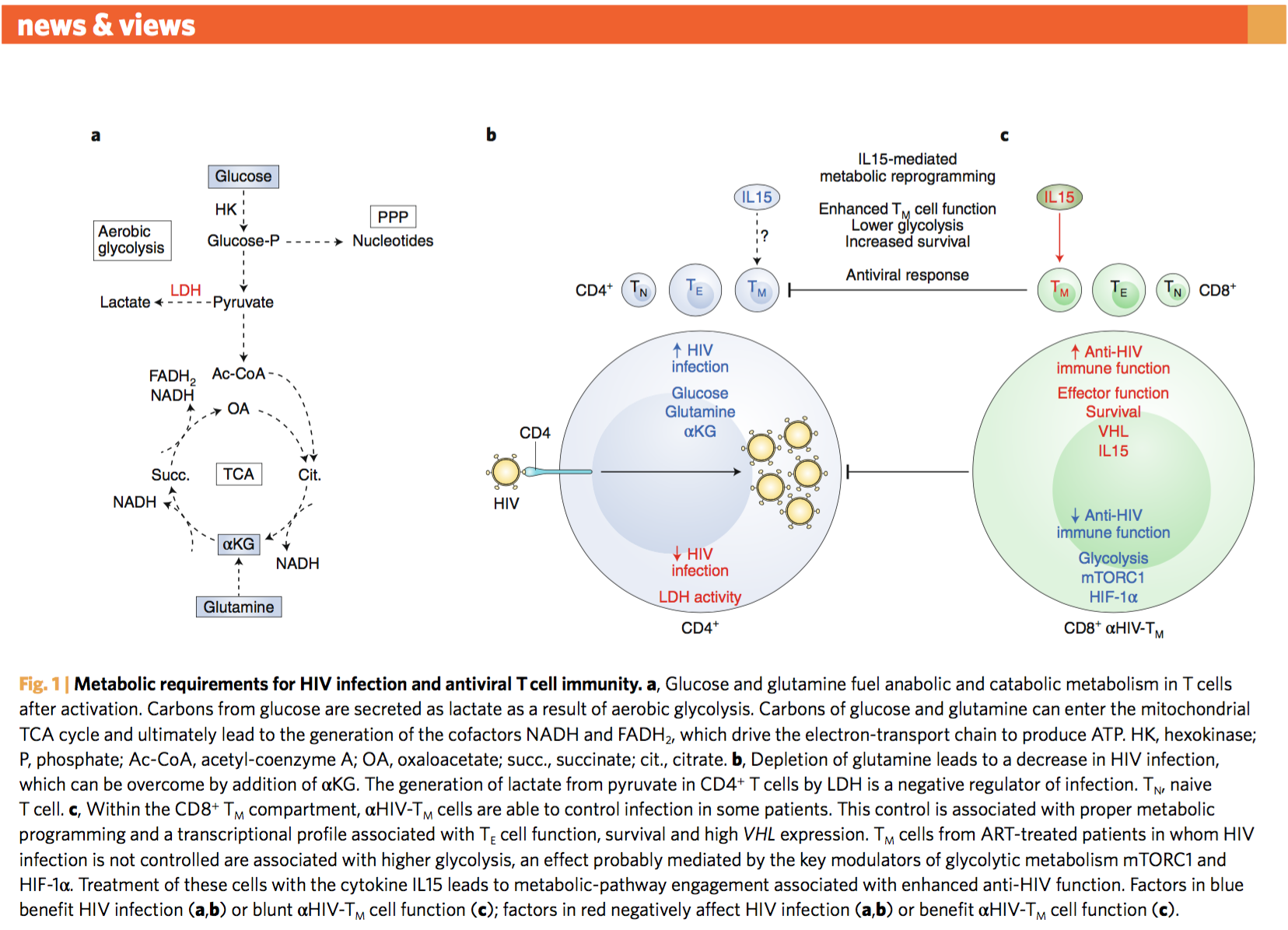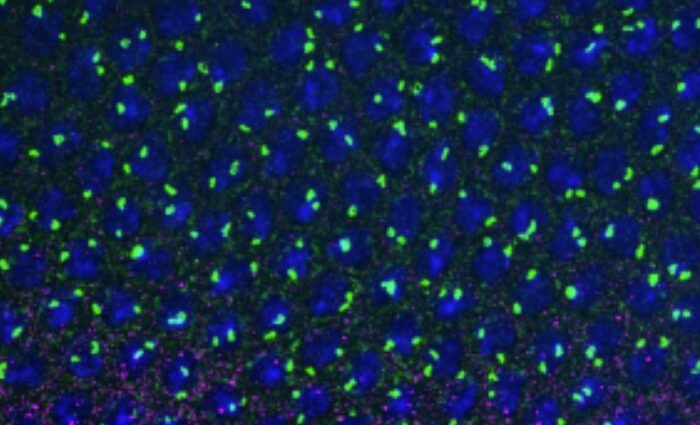CD4 T cells are one of the main targets of HIV. The parameters that govern the biology of these cells and their susceptibility to the virus are of crucial importance in preventing the spread of the virus through the body. Researchers at the Institut de Génétique Moléculaire de Montpellier, pioneers in the field of the regulation of immune cell metabolism, have recently demonstrated that the early stages of HIV infection of CD4 T lymphocytes are directly linked to the metabolic status of the target cells. The researchers have shown that reprogramming the metabolism of these cells can inhibit or allow infection by the virus, paving the way for new therapeutic approaches against the spread of HIV. These results are the subject of an article published on July 12, 2019 in the journal Nature Metabolism.
Entry of glucose- and glutamine-derived carbons into the citric acid cycle supports early steps of HIV-1 infection in CD4 T cells
Isabelle Clerc, Daouda Abba Moussa, Zoi Vahlas, Saverio Tardito, Leal Oburoglu, Thomas J. Hope, Marc Sitbon, Valérie Dardalhon, Cédric Mongellaz & Naomi Taylor
Nature Metabolism, 2019, Vol 1, Pages 717–730 www.nature.com/natmetab
N&V Clerc et Valle-Casuso s42255-019-0091-2-2








